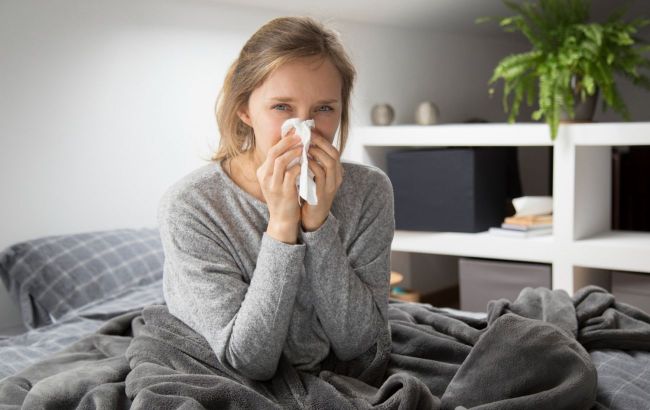Doctor debunks common myth about colds
 Can you catch a cold due to cold weather outside (photo: Freepik)
Can you catch a cold due to cold weather outside (photo: Freepik)
In Ukraine, the season of acute respiratory illnesses began in October, so it’s important to know how to protect yourself from viruses. A doctor explained whether cold weather really causes colds, informs The Mirror.
Does cold weather lead to a cold?
Doctor Donald Grant explained that cold weather alone does not directly increase the likelihood of catching a cold, but certain conditions can raise the chances of becoming ill.
"This is because the cold weather itself can create more ideal conditions that increase the risk of catching an illness. Cold air can suppress the immune system while more people tend to spend more time indoors, in close proximity with others, when temperatures drop," the doctor noted.
Additionally, drier air can make it more difficult to filter out viruses, increasing the likelihood of infection. Overall, cold weather does not cause illness, but it creates the perfect conditions for the easy spread of bacteria and viruses.
In cold weather, it’s important to dress warmly to protect yourself from hypothermia and frostbite. Maintaining a healthy body temperature is also crucial for cardiovascular health.
What increases the risk of catching a cold?
There are various factors that can increase the likelihood of catching a cold.
The doctor explained that young children and the elderly are two age groups most at risk.
Additionally, a person’s immune system can play an important role in the likelihood of getting sick. Lack of exercise, poor diet, and insufficient sleep can affect immune function, making the body less capable of fighting off common illnesses.
"To help reduce the chances of catching a cold, I recommend washing hands often to avoid the spread of bacteria, especially after coming into contact with public spaces and shared items. Soap and water are effective while hand sanitiser is also useful in targeting and removing germs. Typically, bacteria can enter the body through the mouth, eyes and nose - so it’s vital that people avoid touching their faces," the expert added.
In addition to following hygiene rules, maintaining a strong immune system is essential for long-term protection. Therefore, it’s important to get around 7-9 hours of sleep each night and eat a well-balanced, nutritious diet.
Also, read about 8 foods you should keep at home this winter to protect yourself from the flu.
This material is for informational purposes only and should not be used for medical diagnosis or self-treatment. Our goal is to provide readers with accurate information about symptoms, causes, and methods of detecting diseases. RBС-Ukraine is not responsible for any diagnoses that readers may make based on materials from the resource. We do not recommend self-treatment and advise consulting a doctor in case of any health concerns.

